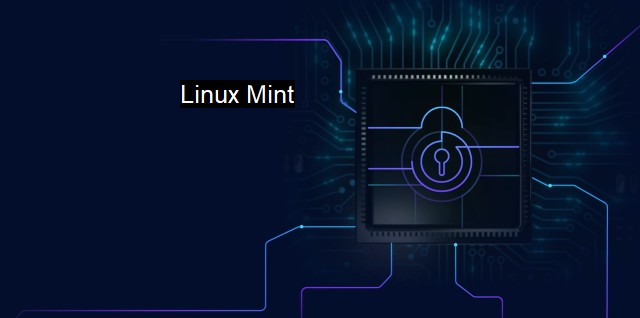What is Linux Mint?
Linux Mint: The Secure, User-Friendly Open Source Operating System of Choice for Beginners and Professionals Alike
Linux Mint is known as a progressive operating system built on Linux -- a safety-centered, open-source system adored by hackers and privacy experts. These strengths find root in the underlying Unix traditions of openness, interoperability, and close control over its environment, to deliver a secure computing experience. Popular software products like Secure Shell (SSH) servers and Virtual Private Network (VPN) applications all trace their lineage to Linux's robust, security-first design. Over years, Linux has undergone a broad variety of iterations and adaptations, among them, one of the highly recognized is Linux Mint.Born from the Ubuntu operating system, another popular Linux iteration, Linux Mint provides an attractive and practical alternate to traditional operating systems like Windows or MacOS, given its robustness and safety benefits. adhering to "security-through-obscurity" with proprietary and monopolized operating systems is no longer enough - Linux Mint represents a step toward inherently secure software.
One of the core aspects that make Linux Mint a secure operating system is its user account management. Unlike many other OS where developers encourage users to operate as administrators, Linux Mint and Unix-based OS's highly discourage this privilege. By limiting permissions, the operating system can isolate potential threats or damage from crucial system files and functions.
Opening a file claimed to contain a virus ends up restricted how far it can infect in Linux Mint, where the user’s privileges limit it. This gives an important layer of system-wide safety against destructive code and bad actors. Hence, tools or software that might be malicious or insecure has more limited opportunities for malicious tampering, adding a fundamental layer of protection.
Another reason why Linux Mint is considered extremely secure is that it comes with built-in Firewall configurations and antivirus software. Through Mint's Firewall application, standardized safety protocols for internet browsing and database access conveniently accessible. Linux Mint’s package manager system is vigilant -- each downloaded file goes through an extensive security screening process, and updates are monitored for stability and security.
Linux Mint also uses the Secure Shell (SSH) cryptographic network protocol for operating network services securely over an unsecured network. In Linux Mint, system administrators have the option to login to their servers using SSH keys instead of passwords. This makes Linux Mint secure for remote access because the login depends on encryption and decryption of SSH keys rather than memorizing a password.
Virus susceptibility is profoundly decreased in Linux Mint due to the majority of viruses being specifically programmed to target Windows systems. This naturally decreased risk profile increases security and makes having an antivirus solution less urgent, though Linux Mint nonetheless takes proactive measures and supports numerous third-party antivirus solutions.
All these factors contribute towards the robust reputation of Linux Mint and their prowess in the cybersecurity realm. In terms of performance, reliability, and security, it's safe to assert that many organizations and individuals keen on fastidious cybersecurity practices will find Linux Mint a powerful tool. cybersecurity isn't solely about the operating system; it encompasses accompanying systems, behavior, and protocols. Linux Mint offers an excellent base for secure computing, but it's only as secure as the user operating it, and the practices they follow. The software must be kept up-to-date, personal habits are scrutinized, and possible security threats are proactively addressed to maintain Linux Mint's full security potential.

Linux Mint FAQs
What is Linux Mint and how does it relate to cybersecurity?
Linux Mint is a popular open-source operating system based on Ubuntu. It is known for its emphasis on user-friendliness, stability, and security. The OS is equipped with several built-in security features, such as a firewall and encryption tools, making it an attractive option for cybersecurity-conscious users. Linux Mint is also widely used by cybersecurity professionals and researchers due to its robustness and flexibility.Does Linux Mint require antivirus software?
While Linux Mint is generally considered to be more secure than other operating systems, it is not immune to malware attacks. Although there are fewer viruses and malware targeting Linux systems, it is still advisable to install antivirus software for added protection. ClamAV and Sophos are two popular antivirus programs available for Linux Mint.What steps can I take to secure my Linux Mint installation?
There are several steps you can take to secure your Linux Mint installation. Some basic security practices include enabling the built-in firewall, encrypting your hard drive, and keeping your system and applications up to date. You should also be cautious when downloading software or opening email attachments, only use trusted repositories, and avoid running commands with root privileges unless absolutely necessary.Is Linux Mint more secure than other operating systems?
Compared to other popular operating systems like Windows and macOS, Linux Mint is generally considered to be more secure due to its open-source nature, strong community support, and built-in security features. However, no operating system is completely immune to cyber threats, and it is important to follow best practices for cybersecurity regardless of the system you are using.| | A | | | B | | | C | | | D | | | E | | | F | | | G | | | H | | | I | | | J | | | K | | | L | | | M | |
| | N | | | O | | | P | | | Q | | | R | | | S | | | T | | | U | | | V | | | W | | | X | | | Y | | | Z | |
| | 1 | | | 2 | | | 3 | | | 4 | | | 7 | | | 8 | | |||||||